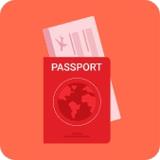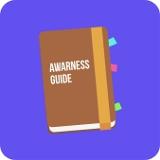

Australia - Currency
- Introduction
- What is the currency of Australia?
- Importance Of Australian Currency
- How to acquire Australian currency?
- Tips To Save Money In Australia
- Accepted Methods Of Payments
- Can I use INR in Australia?
- Take-Home Message
- FAQs
As a novice traveller visiting Australia for the first time, you need to have a good understanding of money matters. This is why learning about the currency of Australia becomes so important. The official currency of Australia is the Australian Dollar, also known as the AUD. In this article, we talk about the currency of Australia, and its usage and also give you some handy tips on managing and using your money wisely in Australia. Take a look.
What is the currency of Australia?
Quick tips for new visitors
- The conversion rate from INR to AUD is 50 to 1. INR 50 is equivalent to $1 in Australia. Keep this equation in mind when converting and using currency in the country.
- Carry small change around for paying local vendors, cab drivers, etc. You may also keep some change with you to hand over as tips.
Australia’s official currency is known as the Australian Dollar. The Reserve Bank of Australia issues the currency notes in the country, which are denoted by the sign $ and carry the code, AUD. An Australian dollar is divided into 100 cents. The currency (small change) is available in denominations of 5c, 10c, 20c, 50c, $1 and $2. For other denominations, have $5, $10, $20, $50 and $100.
Why do I need to have Australian currency?
Did you know?
- Tipping is not a rule, but it is a very prevalent tradition and practically every single diner leaves a tip. In fine dining restaurants, you are expected to leave a tip equivalent to 10% of the bill amount, whereas at smaller restaurants and bars, 5% is the accepted norm.
- If you wish to take a taxi, the average rate for your journey would be around $3.5. Buses are more economical. In a large city like Melbourne, the average bus ticket price is around $2.
Make sure you have a sufficient amount of local currency with you when you travel to Australia. Here are some reasons why:
1. The main form of payment
In most places, including restaurants, shops, tourist attractions, etc., you can only pay with the AUD. This is why you need to keep some cash with you at all times. In larger establishments such as your hotel or at a travel agent’s office, other major currencies such as the USD or GBP may work, but that is also never guaranteed.
2. Hassle-free transaction
It is easier to understand the transactions and dealings when you directly pay with the local currency. You don't have to calculate the conversation rates and count the money each time you pay, as the payments become more streamlined and convenient.
A Travel Tip: The smaller vendors, such as a roadside food stall or a souvenir store may not be able to provide change for a large banknote such as a $50 note. Try walking into a supermarket and making a small purchase like a pack of gum to get the note broken into smaller denominations.
3. Economical
If you pay in a foreign currency, such as the USD or GBP, you will be charged an additional fee. This will push up the overall expense of the transaction. Hence, carry the local currency and save yourself from paying the additional fees.
4. Emergencies
You never know when an emergency may strike. You may be stranded on the road and forced to flag down a cab. You may have to rush to a local clinic to take care of an injury. In all such places, cash payments will be preferred, so carry it with you and be prepared.
How to acquire Australian currency?
An Important Tip:
Most banks in Australia allow you to withdraw AUD 2000 per day through an ATM. There are withdrawal fees associated with ATM transactions, so refrain from using an ATM all the time. Make large withdrawals at once and manage your money thereafter.
Here are the top ways in which you can get cash while you are on your Australian holiday:
1. Banks
You can visit your own bank in your home country before you leave for your journey. Many leading banks offer forex services and you may be able to get some AUD at some very good rates in your bank itself.
2. Online Forex Services
There are many online Forex services that offer good rates. You can acquire the required AUD in cash form. You can also get it added to a travel card and use that card to make payments in Australia.
Travel tip: Most offices in Australia work between 9 a.m. and 5 p.m. Many places stay shut over the weekend. So make sure you get the money exchange work done on time and don't find yourself stranded without cash at an odd hour!
3. Airport
You will see many money exchange counters at all airports. You will find these at your departure airport and arrival airport, and at any transit airport you may cross. You can surely get your money exchanged here, but be aware of the rates. The airport Forex counters are notorious for charging high fees and bad rates of interest, so only approach them if there is an emergency.
4. Local authorised Forex agents
You should be able to find many authorised Forex agents in your home country. They offer competitive rates of interest and make for good options when you look to acquire some AUD for your Australian trip.
A quick note: Though Australia is a very safe country, you may come across a scammer unexpectedly. This is why you should refrain from carrying out any type of financial dealings with unknown or unregistered people. Do not exchange your money unless you are very sure of the place or agent through which you are getting the job done, even if you feel the rates are higher.
5. ATMs
ATMs are always trusted places to withdraw money from. They are also very safe and reliable while being extremely easy to use. Practically every ATM in Australia accepts credit and debit cards, so you can acquire the needed AUD with ease. Just be aware of the fees and charges when using an ATM in the country.
Tips to save money when travelling to Australia
Do consider:
If you want to save a large chunk of money on accommodation expenses in Australia, consider staying in a hostel. Not only will you find an affordable stay option, but you will also experience a wonderful culture of hostel living, which is quite unique and enjoyable.
Here are some handy tips to help you save money when travelling to Australia:
1. Pay with local currency
It is always advisable for you to pay with the local currency, which is the AUD. if you pay with any foreign currency, you will also end up paying extra in the form of fees and charges, and that would unnecessarily push up your overall expenditure.
2. Save on accommodation
Let’s be honest - you are not going to Australia to relax in a hotel room! You are visiting the country to explore it and see all the wonderful attractions. Hence, you will be using the hotel room only to keep your luggage and sleep at night, won't you? This is why you should not spend a lot of money on a fancy hotel. Ditch the luxury and go in for a more modest hotel that will serve the purpose and also help you save tons of money.
A Travel Tip: Pre-booking a hotel room makes it cost-effective. You can get deals and discounts when you research and book in advance. You can also get a room of your choice. If you leave it for the last minute, you may be forced to book only what’s available and that may be more expensive as well as less satisfactory.
3. Travel passes:
In most places across Australia, you can purchase travel buses that can be used on public transport modes such as buses and metros. Get such a pass as it becomes a lot more economical when you pay via a travel pass.
Do Note: Many places in Australia have special travel concessions for children and elderly people. For example, in Brisbane, children below the age of four can travel for free on any bus and children between the ages of 5 and 14 get a 50% concession. Make use of these discounts when you are travelling with your family and make some big savings.
4. Save on transfers
Book an airport bus, or ask a local friend to pick you up from the airport after you land. Private taxis are quite expensive in Australia, so try to avoid them as much as you can, especially if you are on a budget holiday.
What are the payment methods accepted in Australia?
Did you know?
Most banks in India offer travel cards where you can load up foreign currency. You can then use the card as a normal debit card. Use it for your Australia holiday and spend money in a safe and convenient manner.
Listed below are the best payment methods you can use while travelling to Australia:
1. Cash
Cash is a form of payment that all business establishments in Australia, whether big or small, accept. You can pay by cash at a large restaurant or at a small roadside gift shop. Keep some amount of the local currency with you in cash form and easily make payments as you go along.
2. Cards
Different types of cards such as credit cards, debit cards, travel cars, etc. can safely and easily be used for transactions in Australia. Cards are generally safe to use and they save you the hassle of carrying cash around. However, smaller stores, food stalls, etc. don't always accept cards, so you may need to use cash at such places.
A Travel Tip: If you are using an international debit or credit card, make sure you find out about the fees and charges before you use it in Australia. Different banks have different rates, so speak to your bank and get a proper lowdown on the costs and fees.
3. Forex cards
As mentioned above, there are many travel cards that are preloaded with a certain amount of money. You can use them as local debit cards and easily make payments or use them to withdraw cash from ATMs as well.
A Travel Tip: If you are used to making UPI payments in India, you may have to refrain from doing so in Australia as the UPI facilities aren’t quite available in the country. You will not be able to scan QR codes and make payments like you do in India.
Can I use INR in australia?
Travel Tip: Before you exchange your INR for AUD, ensure you do some research and discover who is offering the best interest rate. Check with multiple banks and Forex services and then get the money exchanged as this will guarantee you get the best deal.
INR is not a legal tender in Australia. As a result, you won't be able to use your IRN banknotes in any part of Australia. This is why it is always recommended that you exchange the money beforehand and use the local currency as and when needed in Australia.
Conclusion
With this, we come to the end of this article where you learn all about the currency and financial transactions in Australia. Keep all the points mentioned above in mind and complete your dealings with ease and convenience. Ensure you get the best rates whenever you exchange money and also remember to get it done through safe and reliable platforms.
FAQs
1. How much is 1 AUD to INR?
The rate of the AUD to the INR, as of August 2023, is around 53. 1 AUD is equivalent to INR 53.
2. Is it safe to carry cash or forex in Australia?
While Australia is a very safe country, it is never advisable to travel with large amounts of cash. You can carry some amount of cash and load the rest of it on your travel card to ensure maximum safety.
3. Is it advisable to exchange currency before visiting Australia
Yes, it is advisable for you to exchange the currency in your home country as your local bank may offer good interest rates, as compared to a bank or agent in Australia.
4. How to ensure the safety of money in Australia?
Never keep all of your money together. If you happen to misplace your purse, you will lose all the money at once. Hence, keep money at different places. If you are travelling with someone, split the money between the two of you. This is a very good way to protect your cash from getting lost or stolen when you are travelling.
Ensure a worry-free trip to Australia with comprehensive protection.
KNOW MORE







 Health Insurance
Health Insurance  Travel Insurance
Travel Insurance  Car Insurance
Car Insurance  Cyber Insurance
Cyber Insurance  Critical Illness Insurance
Critical Illness Insurance
 Pet Insurance
Pet Insurance
 Bike/Two Wheeler Insurance
Bike/Two Wheeler Insurance  Home Insurance
Home Insurance  Third Party Vehicle Ins.
Third Party Vehicle Ins.  Tractor Insurance
Tractor Insurance  Goods Carrying Vehicle Ins.
Goods Carrying Vehicle Ins.  Passenger Carrying Vehicle Ins.
Passenger Carrying Vehicle Ins.  Compulsory Personal Accident Insurance
Compulsory Personal Accident Insurance  Travel Insurance
Travel Insurance  Rural
Rural 










